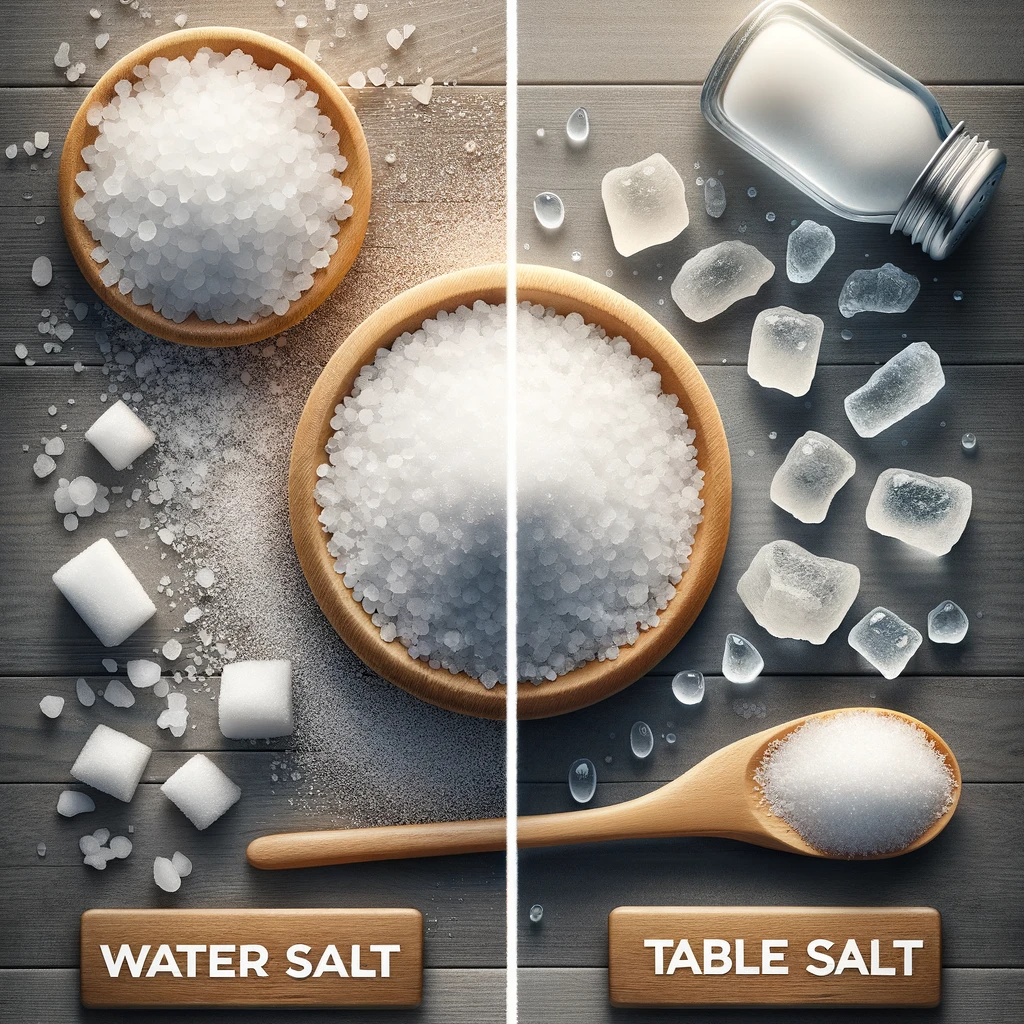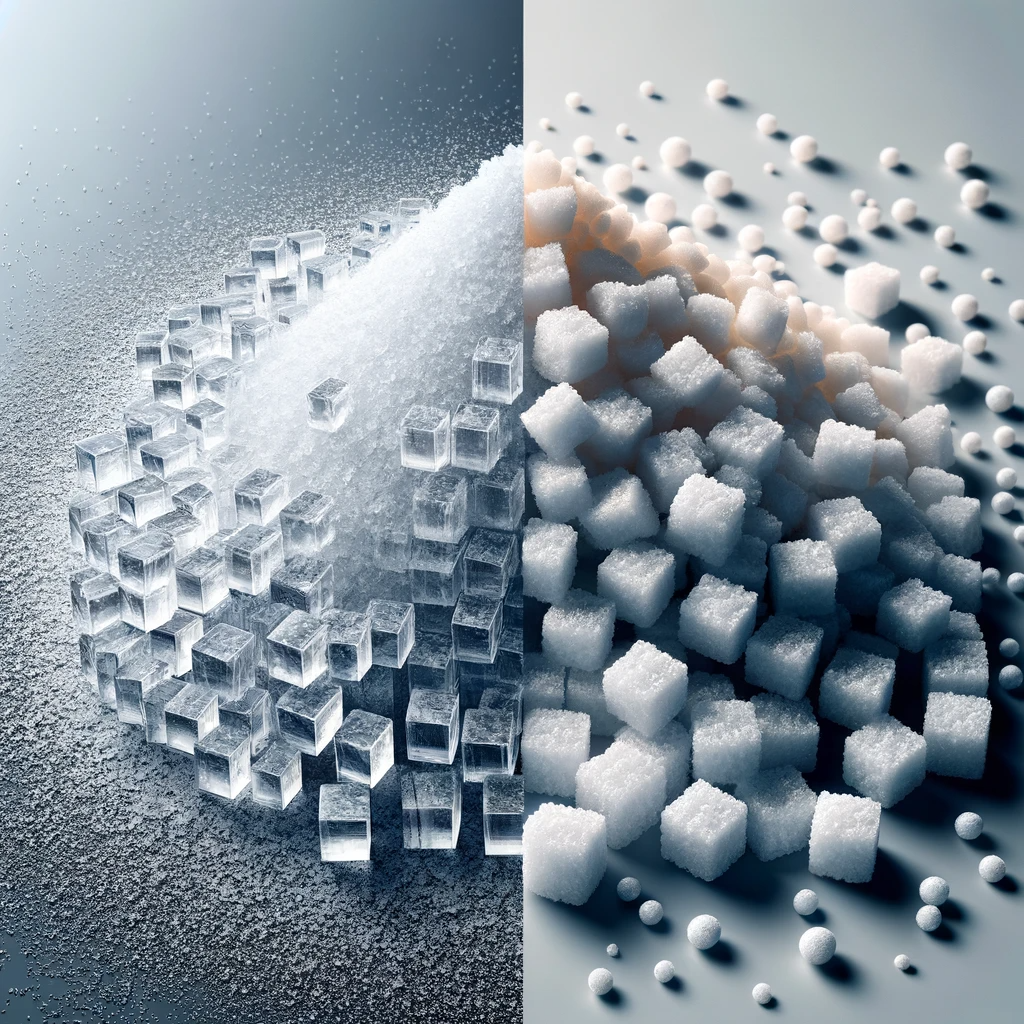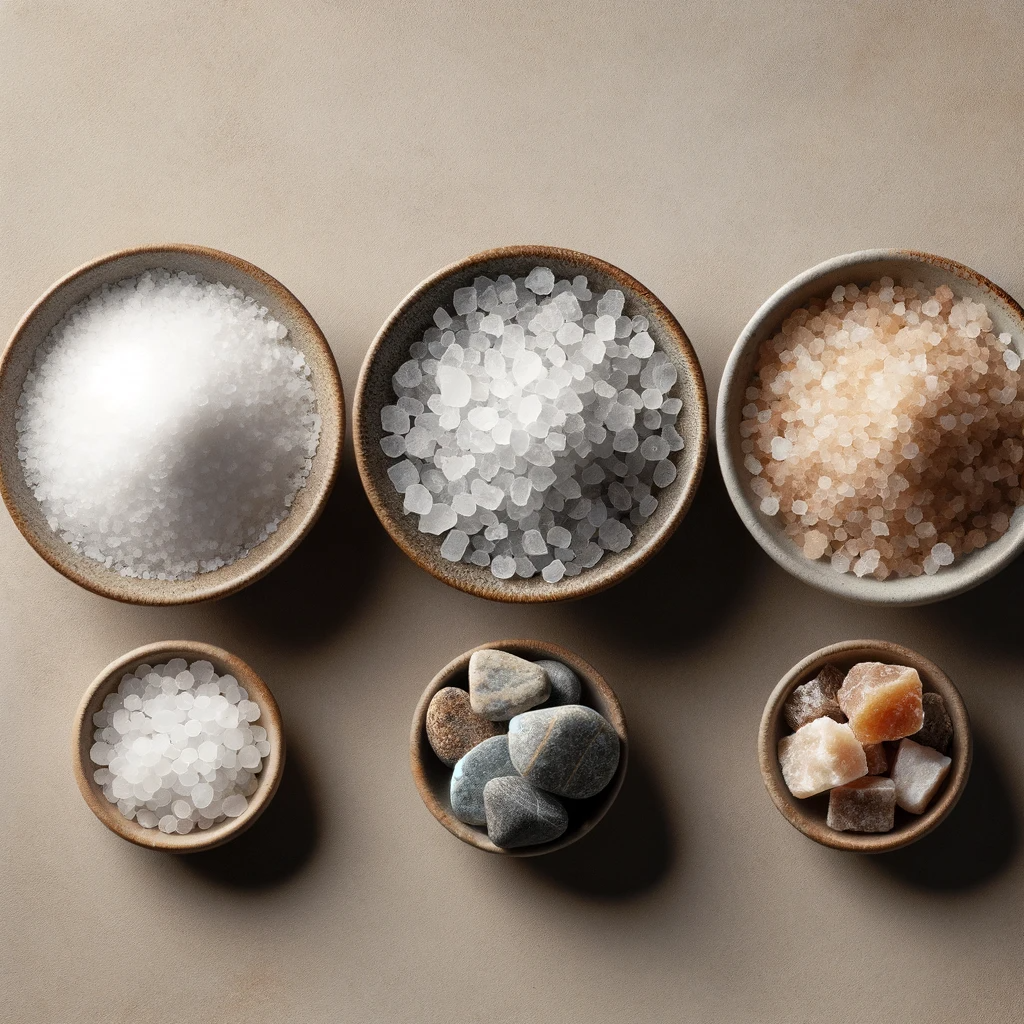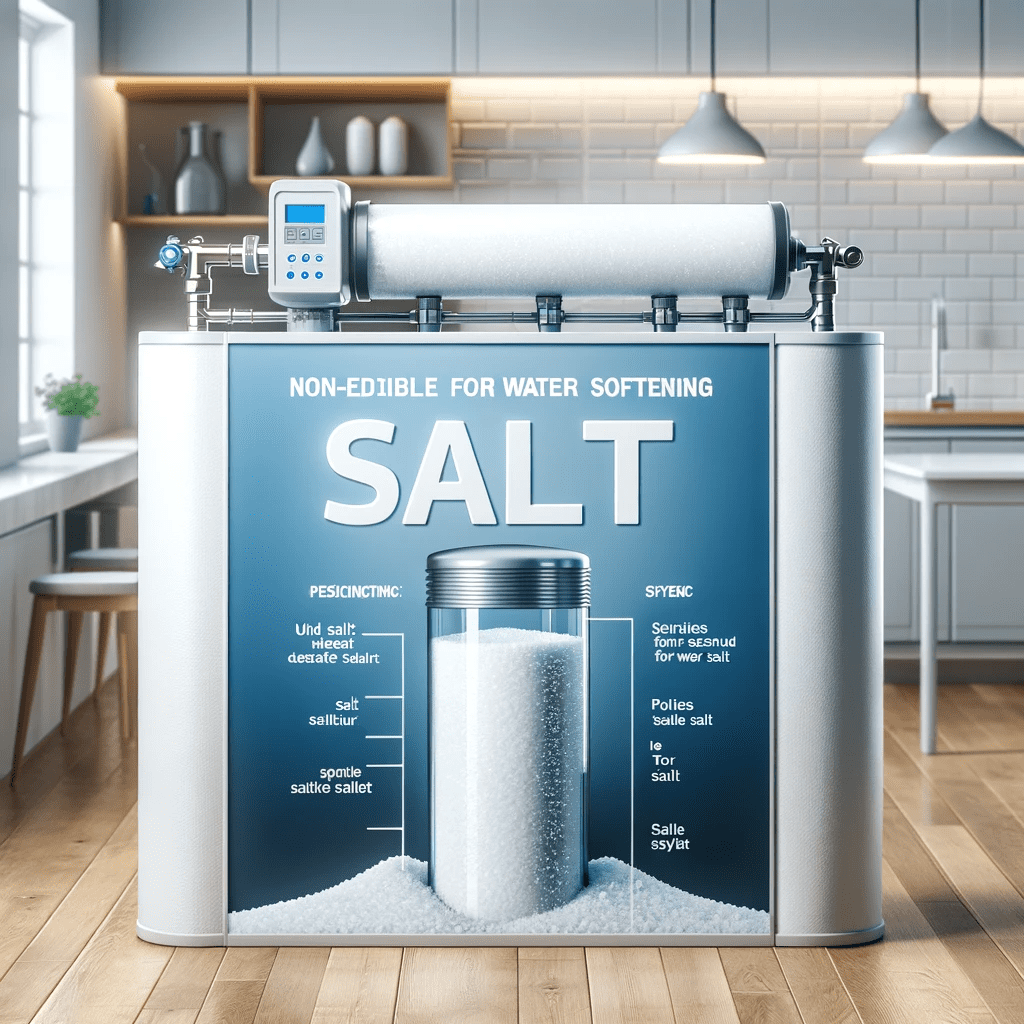Water softener salt is not edible and should not be consumed as it is intended for use in water softening systems, not for food consumption or animal consumption.
The Truth About Water Softener Salt
When it comes to water softener salt, many people wonder whether it is safe to consume. Let’s delve into the truth about water softener salt and address common concerns surrounding its edibility.
Difference Between Water Softener Salt And Table Salt
Salt Institute of North America (SINA) educational materials suggest that water softener salt and table salt serve different purposes. While table salt is intended for consumption, water softener salt is specifically designed for use in water softening systems. Water softener salt primarily consists of sodium chloride, with larger crystals compared to table salt to prevent mushing inside the softener tank.
Potential Impurities And Additives In Water Softener Salt
Water softener salt, such as solar salt, may contain impurities and additives, but it is generally safe for human consumption. The impurities in water softener salt are minimal and do not pose significant health risks. However, it is important to choose high-quality water softener salt brands to minimize the presence of impurities.

Risks Of Eating Water Softener Salt:
The salt used in water softeners is safe to use, but should not be consumed as it is not intended for human or animal consumption. Ingesting a large amount of water softener salt may cause stomachaches.
The Immediate And Long-term Health Risks Of Accidental Ingestion:
Accidentally ingesting water softener salt can have immediate and long-term health risks. While water softener salt is not intended for consumption, potential hazards arise if it is mistakenly ingested. Immediate health risks include stomach upset, nausea, and vomiting. In severe cases, ingesting water softener salt can lead to dehydration, electrolyte imbalances, and even chemical burns in the digestive tract. Moreover, the high sodium content in water softener salt can pose long-term health risks when consumed regularly or in large quantities.
Common Concerns Like Stomach Upset, Dehydration, And Sodium Intake:
1. Stomach Upset: Accidental ingestion of water softener salt can cause stomach upset, resulting in nausea and vomiting. If you or someone you know accidentally ingests water softener salt, it is recommended to drink plenty of water to dilute the salt and seek medical attention if symptoms persist.
2. Dehydration: Ingesting water softener salt can lead to dehydration due to its high salt concentration. Salt absorbs water, reducing its availability for bodily functions. This can cause a decrease in overall hydration levels, leading to dizziness, fatigue, and a dry mouth. To combat dehydration, it is crucial to drink plenty of fluids and seek medical attention if symptoms worsen.
3. Sodium Intake: Water softener salt is primarily sodium chloride, which increases the sodium content in the body when consumed. Several problems are associated with sodium overconsumption, including high blood pressure, water retention, and cardiovascular diseases. If you are concerned about sodium overconsumption, consult your healthcare professional immediately.
Remember, if accidental ingestion of water softener salt occurs, it is vital to contact the Poison Control Center website or seek immediate medical assistance for guidance on proper treatment.

Safe Uses For Water Softener Salt:
The use of water softener salt goes beyond just making water soft. It also has several safe non-food applications that can be beneficial in various situations. Let’s explore some of these safe uses!
Melting Ice
Water softener salt can be an effective solution for melting ice on driveways, pathways, and sidewalks. The large crystals and high purity of this salt make it ideal for this purpose. However, it’s important to note that while water softener salt is safe for melting ice, it should not be used on delicate plants or grass as it may cause damage.
Deodorizing
Water softener salt can help eliminate unpleasant odors in your home. By creating a solution with warm water and salt, you can use this mixture to clean and deodorize various surfaces. Its natural properties work effectively in neutralizing odors in bathrooms, kitchens, and even refrigerators. Just remember to rinse the surfaces thoroughly after cleaning to avoid any salt residue.
Weed Control
When it comes to weed control, water softener salt can be a safe and efficient option. By applying a concentrated salt solution to unwanted weeds, you can effectively hinder their growth. However, caution must be exercised when using this method, as water softener salt can also affect nearby plants and soil. It’s best to use it in areas where you want to prevent any plant growth.
Proper Storage And Handling Precautions
While water softener salt is generally safe to use, it’s important to follow proper storage and handling precautions. Here are some important points to keep in mind:
- Store water softener salt in a cool, dry place to prevent clumping and ensure its effectiveness.
- Avoid mixing water softener salt with other substances, as it may result in chemical reactions.
- Always keep water softener salt out of the reach of children and pets to prevent accidental ingestion.
- When handling water softener salt, use gloves to protect your skin.
- If accidental contact with the eyes occurs, rinse thoroughly with water.
In conclusion, water softener salt has various safe non-food applications such as melting ice, deodorizing, and weed control. By following the proper storage and handling precautions, you can utilize water softener salt effectively and safely. Remember to consult the Food and Drug Administration (FDA) salt guidelines and understand the benefits of water softener salt before use.

Alternatives To Water Softener Salt For Food:
When it comes to ensuring the safety and quality of our food, it’s essential to be cautious about the type of salt we use. Let’s explore some recommended food-grade salt options for cooking and pickling, taking into consideration the benefits of using pure, unprocessed salt.
Recommend Food-grade Salt Options For Cooking And Pickling:
Choosing the right water softener salt for food-grade applications is crucial. Opt for reputable brands that offer food-grade salt options specifically designed for cooking and pickling. Look for salt labeled as “pure,” “unrefined,” or “natural,” as these are indicative of higher quality and purity. Nature’s Own Sea Salt and Himalayan Pink Salt are popular choices, known for their clean and distinct flavors, making them ideal for culinary purposes.
The Benefits Of Using Pure, Unprocessed Salt:
Opting for pure, unprocessed salt comes with numerous benefits. Unlike industrial-grade salts, pure salt contains essential minerals and trace elements that contribute to its distinct flavor and nutritional value. When added to food, it enhances the overall taste while providing vital nutrients. Additionally, unprocessed salt undergoes minimal or no chemical treatments, preserving its natural purity and integrity. This ensures that your dishes are not only flavorful but also free from undesirable additives.
Prevention Tips
Water softener salt, usually made of sodium chloride, should not be ingested as it’s not safe for consumption. Although safe for water softening, it’s not for food or animal consumption. Ingestion may lead to stomachache if consumed in large quantities.
Always use water softener salt for its intended purpose only.
Keeping Water Softener Salt Out Of Reach Of Children And Pets
When it comes to using water softener salt in your home, it’s important to take precautions to ensure the safety of your children and pets. Water softener salt is not intended for consumption, so it’s crucial to keep it out of their reach. Here are some simple tips to help you prevent any potential accidents:
- Store the water softener salt in a secure and locked cabinet or storage area, preferably high up where children and pets cannot access it.
- Consider using childproof locks or latches on cabinets to prevent curious little hands from opening them.
- Keep the salt container tightly closed to avoid spillage or accidental ingestion.
Clear Labeling And Secure Storage Solutions
Clear labeling and secure storage solutions are important for maintaining the safety of your household. By following these steps, you can ensure that water softener salt is stored properly and poses no risk to your loved ones:
- Label the storage container with a clear and visible warning sign indicating that the contents are not edible.
- Consider using child-resistant packaging for the water softener salt to add an extra layer of protection.
- Store the salt away from food items to avoid any confusion or accidental consumption.
By implementing these prevention tips, you can create a safe environment in your home and protect your children and pets from any potential hazards associated with water softener salt. Remember, the safety of your loved ones should always be a top priority!
Frequently Asked Questions Of Is Water Softener Salt Edible
Is Water Softener Salt Safe For Humans?
Water softener salt is safe for humans to consume, with no health effects for most people. The only exception is for those on an extremely low-sodium diet. Water softener salt should not be used for food consumption, as it is not meant for this purpose.
What’s The Difference Between Water Softener Salt And Regular Salt?
Water softener salt and regular salt are not the same. Water softener salt is not recommended for consumption, while regular salt is safe to eat. Water softener salt is used to remove hard water minerals, while regular salt is used for flavoring food.
Can You Drink Water Softener Salt?
Water softener salt should not be consumed as it is not intended for food or drink. While it is safe for water softening, ingestion may cause stomach discomfort.
Can You Use Softener Salt To Make Ice Cream?
Water softener salt is not edible and should not be used in making ice cream. It is specifically manufactured for use in water softening systems and may contain harmful chemicals. It is recommended to use rock salt or ice-cream salt when making ice cream.
Can Water Softener Salt Be Consumed By Humans?
The salt used in water softeners is safe to use, but it shouldn’t be consumed by humans or animals.
Conclusion
Water softener salt is not meant for consumption but for water softening purposes. While it is not typically harmful if accidentally ingested in small amounts, using it for food or animal consumption is not advisable. It’s important to use the right type of salt for specific purposes to avoid any potential health risks.


Leave a Reply